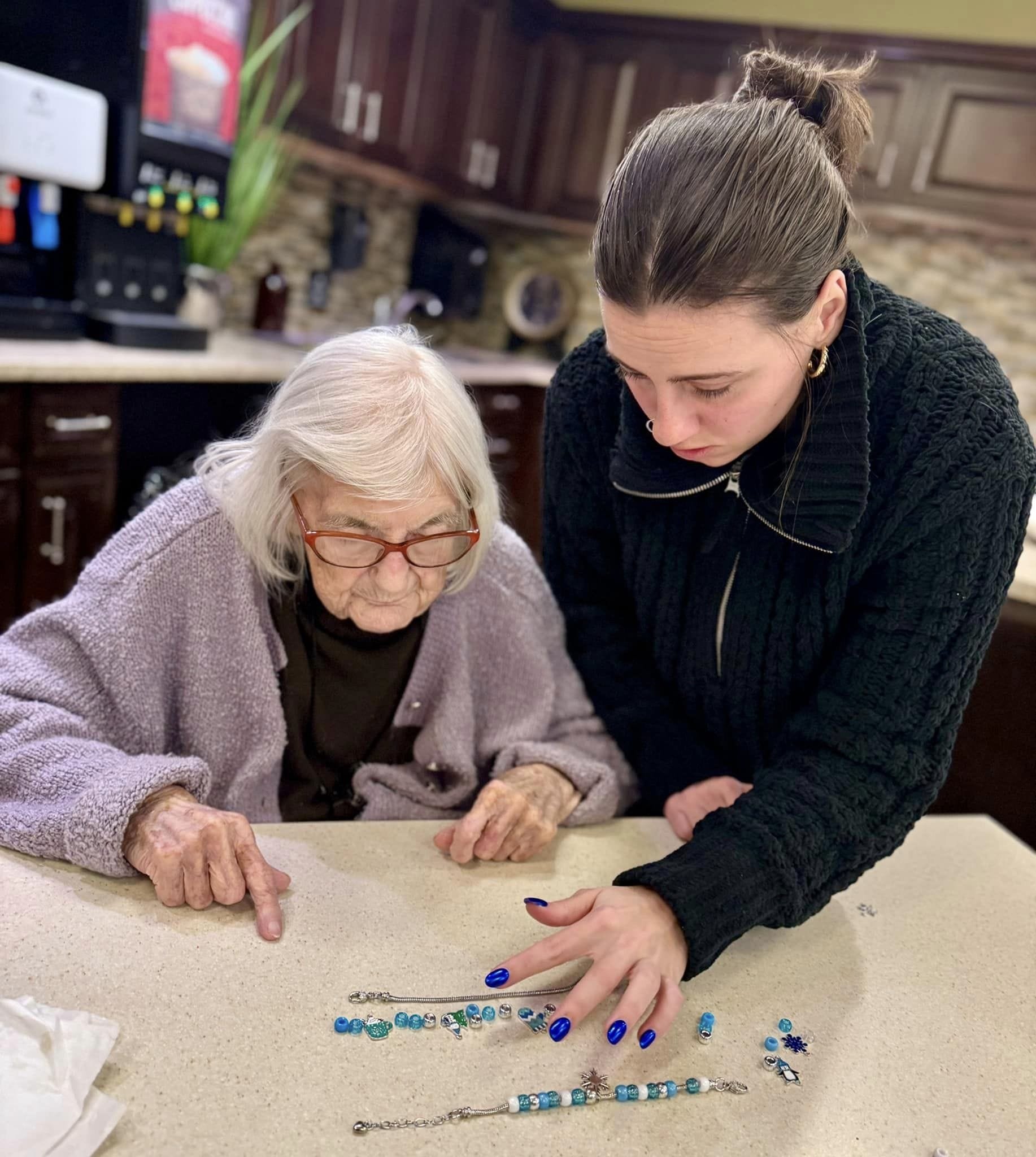Creating Safe and Comfortable Rooms with Alzheimers Care Charlotte Programs
Creating Safe and Comfortable Rooms with Alzheimers Care Charlotte Programs
Blog Article
Developing a Safe and Helpful Setting for Alzheimer's Treatment
The development of a safe and supportive atmosphere for individuals with Alzheimer's is paramount in boosting their quality of life. This involves not just physical adaptations within the home, such as decreasing hazards and integrating acquainted elements, but likewise the application of structured regimens and significant tasks that satisfy their cognitive demands. In addition, recognizing the mental and emotional dimensions of treatment can significantly influence their sense of security and connection. Checking out these diverse approaches can expose vital understandings into effective caregiving techniques that may transform the daily experiences of both clients and caretakers.
Understanding Alzheimer's Needs
Often, people with Alzheimer's disease show a variety of demands that need customized approaches to care. As the problem advances, cognitive decline materializes in different means, affecting memory, thinking, and also the capability to do daily tasks. Caregivers need to acknowledge these advancing requirements to offer ideal assistance and make certain a higher high quality of life for those affected.
One crucial element of comprehending Alzheimer's demands is acknowledging the significance of regular and experience. Individuals often find comfort in recognized patterns, which can decrease anxiety and confusion. Caretakers must strive to produce structured everyday timetables that integrate significant tasks aligned with the person's capacities and interests.
In addition, effective interaction is extremely important. People with Alzheimer's might battle to reveal themselves or comprehend complicated language. Caretakers should employ easy, clear language, usage non-verbal signs, and practice active listening to cultivate understanding and link.
Lastly, social and emotional requirements can not be overlooked. Giving chances for social interaction and preserving partnerships can considerably enhance emotional health. Caregivers must motivate interaction in community tasks or family members celebrations, promoting a sense of belonging and function. Comprehending these varied requirements is important for producing a supportive care setting.
Creating a Safe Home
Producing a safe home for people with Alzheimer's condition is important to reducing risks and advertising independence. The design of the living area should focus on security while enabling individual comfort. Initially, get rid of potential hazards such as loosened carpets, sharp items, and clutter, which can bring about drops or mishaps. Make certain that pathways are well-lit and clear, as correct lighting reduces disorientation and improves mobility.
Including flexible attributes is additionally critical. Set up grab bars in bathrooms and near staircases, and think about using non-slip mats in damp areas. Furthermore, making use of contrasting colors for wall surfaces and floors can assist in distinguishing areas, assisting to minimize confusion.
Familiarity is essential for individuals with Alzheimer's. Personalizing the environment with familiar items and photos can strengthen a sense of belonging and security - Alzheimers Care Charlotte. It is also beneficial to have a marked area for everyday activities, such as analysis or crafting, which can provide structure to their day
Lastly, applying a safe exterior room enables secure exploration while connecting with nature. By thoughtfully making the home setting, caregivers can significantly enhance the top quality of life for individuals coping with Alzheimer's illness.
Enhancing Communication Abilities

Non-verbal interaction, consisting of face expressions, motions, and touch, plays a critical duty in conveying empathy and understanding. Maintaining eye contact and a tranquil demeanor can boost the convenience level of the individual, advertising a sense of safety.
Furthermore, it is essential to exercise active listening. This includes being completely present, revealing persistence, and allowing the person to reveal themselves without disturbance. Repetition might be required; caretakers must be prepared to take another look at subjects or inquiries, as individuals with Alzheimer's may fight with memory recall.
Additionally, making use of aesthetic help or signs, such as pictures or familiar objects, can assist in recognition and interaction. Ultimately, enhancing interaction skills has to do with building trust and developing an atmosphere where individuals feel listened to, valued, and understood, thus enhancing their lifestyle.
Motivating Social Interaction
Fostering purposeful social interactions can significantly improve the well-being of individuals with Alzheimer's illness. Engaging with others not just assists battle feelings of isolation yet likewise boosts cognitive function and emotional wellness. Structured social activities, such as group video games, arts and crafts, or songs therapy, develop opportunities for citizens to get in touch with peers and caretakers, which can result in improved mood and lowered stress and anxiety.
Developing an inviting environment that encourages socializing is necessary. This can be attained by organizing common spaces that assist in interaction, such as comfortable seating areas or activity rooms. In addition, including culturally relevant and acquainted activities can spark memories and encourage involvement, allowing people with Alzheimer's to feel even more linked to their previous experiences.
Furthermore, caretakers should be trained to recognize and advertise social involvement among residents. Easy motions, such as launching discussion or promoting small team discussions, can aid individuals really feel valued and consisted of. On a regular basis set up get-togethers need to be consistent yet versatile, suiting varying degrees of capability and passion. By focusing on social interaction, we can considerably enrich the lives of those living with Alzheimer's, promoting a feeling of neighborhood and belonging.
Supporting Caretaker Health

To sustain caretakers, companies should offer regular training and educational sources to boost their understanding of Alzheimer's condition and caregiving techniques. Giving access to reprieve care solutions enables caregivers to take click now essential breaks, decreasing tension and tiredness - Alzheimers Care Charlotte. Additionally, fostering a neighborhood through support system can facilitate psychological sharing and the exchange of sensible guidance among caretakers, developing a network of common assistance
Mental health resources, such as counseling services, can additionally be crucial in attending to the psychological toll caregiving can take. By prioritizing caregiver wellness, we produce a more lasting caregiving atmosphere that not just benefits the caregivers themselves but also boosts the total top quality of treatment obtained by people with Alzheimer's. Ultimately, supporting caregivers is a crucial component in cultivating a browse around these guys effective and compassionate treatment setup.
Conclusion
Finally, the creation of a supportive and risk-free environment for individuals with Alzheimer's is vital to enhancing their lifestyle. By focusing on safety via thoughtful style, cultivating psychological wellness with acquainted elements, and promoting involvement through structured regimens, caregivers can dramatically affect the general experience of those impacted by this condition. Sustaining caretaker wellness is important, as it ultimately contributes to an extra compassionate and effective care setting.
Repetition might be required; caregivers must be prepared to take another look at questions or subjects, as people with Alzheimer's might battle with memory recall.

Report this page